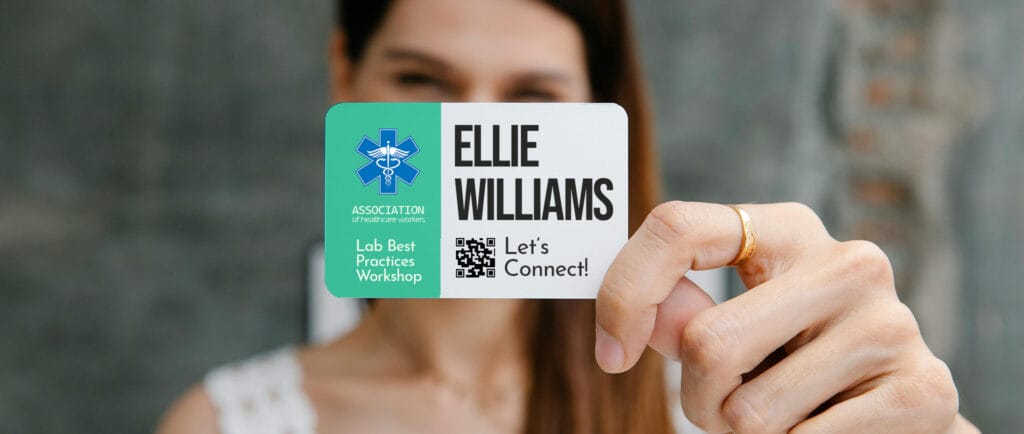How To Create More Engaging Workshops For Your Association’s Members: 5 Fresh Ideas
Whether located around your annual meeting or as a standalone event, workshops can be an effective way to supercharge engagement.
And right now, solid engagement is something that associations could use a bit more of. According to the 2024 edition of MCI’s Association Engagement Index, two-thirds of association members regularly access the content organizations produce. But less than a third regularly engage in what the report calls “association life”—regular engagement with events or fellow association members. Over time, this could lead to more passive members and even churn.
That sounds like a tough nut to crack, but structured workshops could be exactly what you need to make everything “click” for your members, says Liz Lathan, CMP, the cofounder and Chief Marketing Officer of The Community Factory, an event-design firm.

Watch the video to see workshop expert Liz Lathan share her top tips on how to build engaging workshops for association members.
“I think when you’re in the room, having a more workshop format that is facilitated, that involves group work, that involves conversation, that involves an actual reason to get on a plane and be with people in a room? It provides so many different levels of engagement,” she says.
Of course, not all workshop formats are created equal. But the right techniques, strategies, and approaches can not only help drive engagement while everyone’s in the room, but can potentially move the needle when everyone’s back at work.
Lathan, who has spent more than two decades in the events space, shared a few strategies with us around how to build workshops that support your business goals:
Engaging Workshops: What Attendees Need
In a nutshell, workshops are standalone events, driven by facilitators and built around a specific topic. Generally, workshops focus on a narrowly relevant or emerging subject. For example, you might have a day-long event targeted specifically at hiring managers within your membership, or you might focus intently on broader trends in artificial intelligence. These workshops may convey specific tactics or advice, or they may be highly interactive.

As Lathan notes, when done well, they represent a distillation of what an association does best—education, supporting certifications, and advocating for their sector.
“It’s so that people can leave with a benchmark understanding of industry best practices, and then go execute against those—so that we’re all raising ourselves to a higher level,” Lathan says.
Effective Workshop Designs
Often, the most engaging workshops are built around a specific structure or framework—an area that Lathan specializes in, having developed concepts such as the Spontaneous Think Tank, which leans on a wall of sticky notes and crowdsourcing to help drive conversations around attendees’ business challenges. It’s an approach Lathan says combines elements of a design thinking process and an unconference event—but with facilitation to drive engagement.

“It’s a think tank because you’re there to solve a problem, but it’s facilitated in a way that you actually assigned a leader to the conversation,” she says. “And so, even if the leader is a terrible speaker, even if the leader goes off the rails a little bit, the people can bring it back because they’ve all been given this opportunity to participate.”
In general, Lathan says structured events generate consistent results and discussion.
“Having people in a room together, following a framework—having people understand how to implement these things in a consistent way, so that the quality goes up—I think that’s where the real value is,” she says.
Engaging Workshop Ideas
Building for engagement won’t get you far if your workshop attendees aren’t ready to engage. Having wallflowers in the audience can be a major limiting factor for growth.
For example, if your workshop is tied to an annual meeting, attendees who prefer listening to lectures may feel lost in a highly interactive session. But with the right audience, there’s real potential for engagement to extend beyond the moment.
A few years back, Latham helped conduct a study that led to a new term for engagement, Return on Emotion, the concept that certain emotions need to be evoked to drive business connections. Workshops, she says, are the perfect testbed for attendee engagement.

“You feel a sense of belonging, you feel a sense of acceptance, and you feel the sense that you are with your people. And that’s where workshops really shine,” Lathan says. ”When you go into a room with 5,000 people in a keynote hall, you can’t see the people on the left or the right because the room’s so dark.”
One strategy that could help break the ice? A well-designed name badge that makes it clear you know who you’re talking to. “The name needs to be big,” Lathan says. “And I firmly believe that the first name is what matters more than anything.”
Accountability: Post-Workshop Goal Setting
A good workshop can bring people out of their comfort zones and get them thinking differently about their roles. But how can you ensure that the workshop actually drives some true change?
Lathan suggests adding in a dash of accountability—and that accountability can even be analog in nature.
“Make everybody write a letter to themselves about what they will be doing, let’s say six months from now,” she suggests. “And then, the leader should take those letters and then in six months mail them to everybody.”

The result, Lathan says, makes attendees their own accountability buddies. Speaking of accountability buddies, that could be something else that attendees bring home with them—a pledge they’ll chat with a fellow attendee a month after the meeting, and then after they each get their respective letters.
If you’re looking for a more digital approach, online community tools, such as chat platforms or networking apps, could also prove effective for keeping the discussion going. Even if your facilitator’s contract doesn’t extend beyond the event, association employees or volunteers could take over.
“An association is a 365-day community, anyway,” Lathan adds.
Build On Your Workshop’s Success
Finally, don’t be afraid to promote the work attendees are doing on social media. After some time has passed by (Lathan suggests 45 days), post about what attendees are doing with the knowledge they gained from the workshop on TikTok, LinkedIn, or your social media platform of choice.

By playing the long game, a workshop suddenly isn’t just a small-scale event anymore—it’s pushing engagement forward within your organization and beyond.
“When you can put those in a room together and actually have that camaraderie get built, along with education and that cognitive engagement, they’re going to go do something with it,” Lathan says. “This is the vital role that workshops play in any educational program.”
And it might just make your next workshop one that potential attendees won’t want to miss.
To find out how EventMobi can help you create more engaging meetings and events throughout the year, sign up for a free demo!